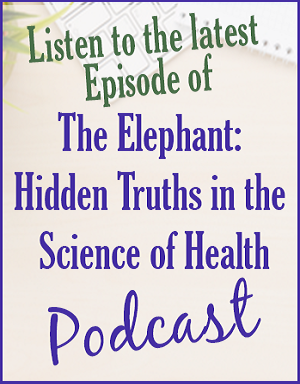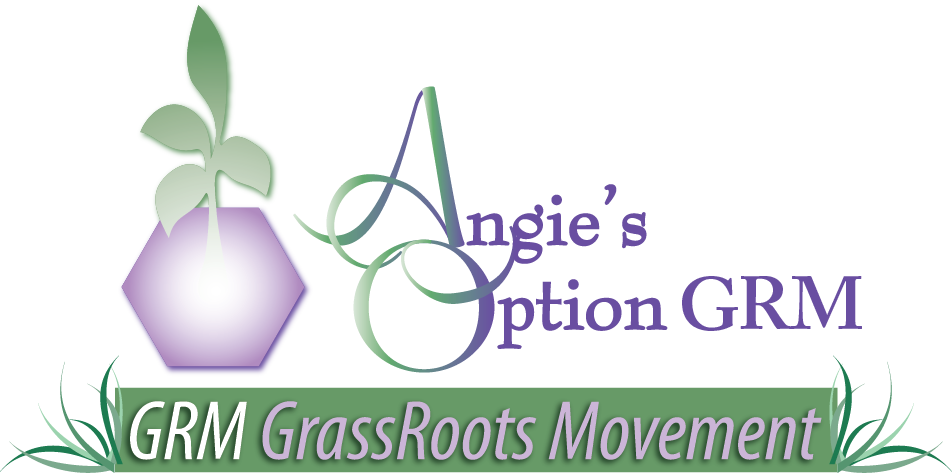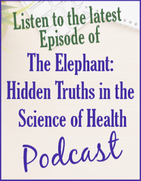Larry A. Law
Potassium
Potassium is a mineral that your body uses as an electrolyte to conduct electricity. Like magnesium, potassium also works to relax the walls of arteries, keep muscles from cramping, and lower blood pressure. Dr. Paul Whelton of Tulane University found that low levels of potassium correlated with high blood pressure. He stated, "Increased potassium intake should be considered as a recommendation for prevention and treatment of hypertension (high blood pressure)" and to reduce the risk of stroke.
Hypertension
High blood pressure increases the risk of stroke since it causes blood vessels in your brain to rupture or clog more easily. In both cases, oxygen supply to part of the brain stops and a stroke results. The increased workload on the heart can also result in heart failure. Smaller arteries can become damaged and oxygen supplies to organs like the kidneys or eyes can be reduced leading to kidney failure and blindness.
Sodium to Potassium Ratio
Doctors recommend people consume five times more potassium than sodium. Unfortunately, most Americans eat two times more sodium than potassium. Getting more vegetables in your diet and less processed food are key to restoring this balance. A note on salt: salt has been demonized by the medical establishment as the major problem causing hypertension. The commercially refined and processed table salt certainly is a problem and is overly abundant in processed foods. However, natural, unprocessed, real salt is never a problem. This type of salt has a mix of minerals (including potassium and many trace minerals) that are essential for health. Definitely avoid the purified, laboratory-processed sodium chloride sold as salt in the stores, but buy and use real salt. Feel free to reach out to Angie if you'd like our opinion on a good option.
Foods High in Potassium
Foods rich in potassium include sweet potatoes, tomatoes, spinach, beets, black beans, wild-caught salmon, butternut squash, apricots, cantaloupe, Swiss chard, mushrooms, tuna, bananas, avocado, and edamame. Potassium in inorganic supplements often comes as potassium chloride which should be avoided. Potassium in fruits and vegetables comes primarily as plant-based potassium citrate or potassium malate. These forms of potassium create a more alkaline (non-acidic) environment in the body. Scientists have discovered that an overly-acidic environment leads to bone loss as the body removes the calcium (an alkaline mineral) from bones to neutralize the acidity. This excessive breakdown of bone leads to disease.
Fructose
A diet with too much sugar in the form of high-fructose corn syrup (HFCS) can cause problems. In addition, most HFCS is bioengineered (GMO). Fructose elevates uric acid in the body, which drives up blood pressure by inhibiting the nitric oxide in your blood vessels. Nitric oxide helps blood vessels maintain their elasticity which allows them to help the heart push the blood along. In addition, high blood pressure is associated with insulin resistance. Insulin glycoprotein cell receptors become damaged, leading to insulin resistance and the inability to store magnesium within the cell. The magnesium will pass out of your body through urination. Magnesium properly stored in your cells allows muscles to relax. Without it, blood vessels will constrict rather than relax and this constriction raises blood pressure. So, eating real food and cutting down on carbohydrates works in myriad ways to lower hypertension and promote health. Of course, the sugar nutrients that allow cells to form healthy glycoprotein cell receptors are the first key to lowering blood pressure. For more information, see my book, There's An Elephant in the Room--Exposing Hidden Truths in the Science of Health, chapter 27, for all the details. As always, feel free to reach out if you have any questions.
2 Comments
Charles Winsor
2/28/2023 12:54:25 pm
Very good article. I guess I will have to re-read Chapter 27 of your book "There's an Elephant in the Room." I have it in one of my book cases at home. I'm sure I need to learn and do more to combat insulin resistance. --- Chuck Winsor
Reply
Larry Law
2/28/2023 10:46:34 pm
Thanks Chuck,
Reply
Leave a Reply. |
BlogArchives
July 2024
Categories
All
|
© Angie's Option GRM. All rights reserved.








 RSS Feed
RSS Feed

